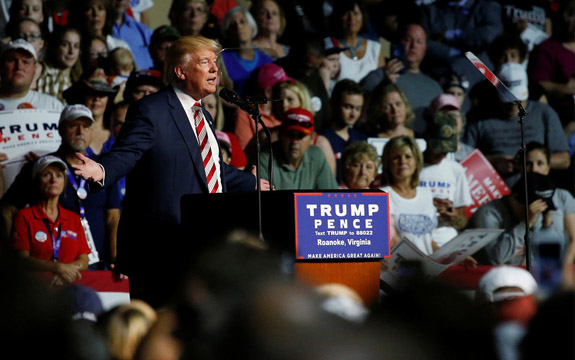Clinton-Trump tied! Here’s why you should ignore polls

In Summary
- Analysis for The Conversation by Bryan Cranston, Online Lecturer in Politics, and PhD Candidate in Politics and History, Swinburne University of Technology
Politico today ran the headline:
6 weeks to go, Clinton and Trump are tied.
If one believes the latest polls, then the election to decide the next US president is incredibly close. The New York Times poll (September 19) has Hillary Clinton narrowly ahead of Donald Trump, 44%-42%, the RealClearPolitics poll (September 18) is has Clinton in the lead 44% to 38%, while the USA Today national polling averages has Clinton up 41% to Trump’s 40.3%.
However, presidential elections are always close contests when it comes to the popular vote. Barack Obama won re-election in 2012 by just 3.9%.
In 2008, Obama won his first election in a popular vote landslide – of just 7.2%. Over the last four presidential elections, the variance between winner and loser has been an average of 3.5%.
In fact, excluding Ronald Reagan’s 1984 landslide, over the last 40 years the average popular vote margin between presidential winners and also-rans is 6.2%.
All three of the above polls have Clinton in front, with an average of 2.9%. If this translated to election day, then this is a greater margin than that which George Bush won with in 2004 and 2000, and Jimmy Carter in 1976.
In a country of almost 320 million people, the popular vote on election day is always very, very close.
What does all this mean?
An examination of the final polls prior to election day in 2012 shows Obama was either ahead of Mitt Romney by 1%, tied, or behind by 1%. As we know, Obama won the election by a margin of 3.9% of the popular vote.
What this all means is that as we get closer to election day, the polls will undoubtedly tighten between Clinton and Trump, and the lead will invariably swing back and forth, but in recent history, national polling has consistently proven to be an unreliable indicator.
The fact is that the popular vote in presidential elections is always very close, but that does not determine the winner.
![]()
Written by Bryan Cranston, Online Lecturer in Politics, and PhD Candidate in Politics and History, Swinburne University of Technology. This article was originally published on The Conversation. Read the original article.

